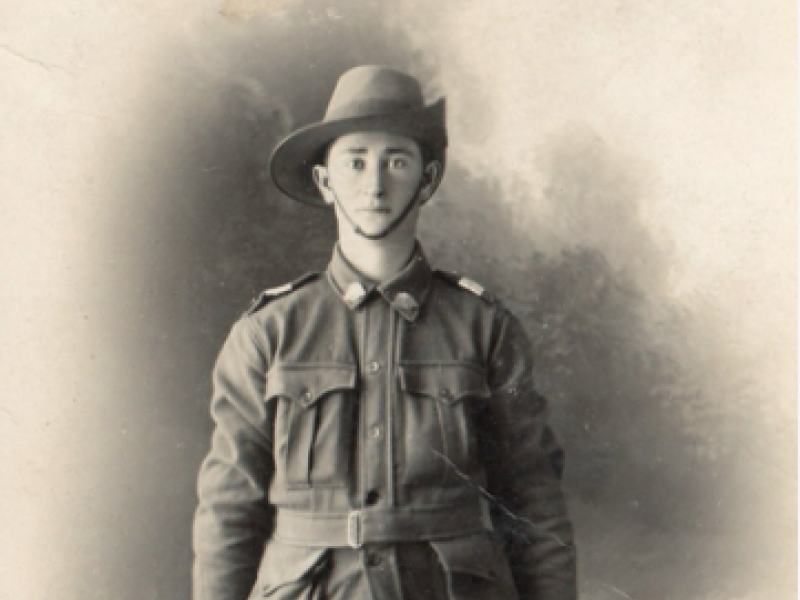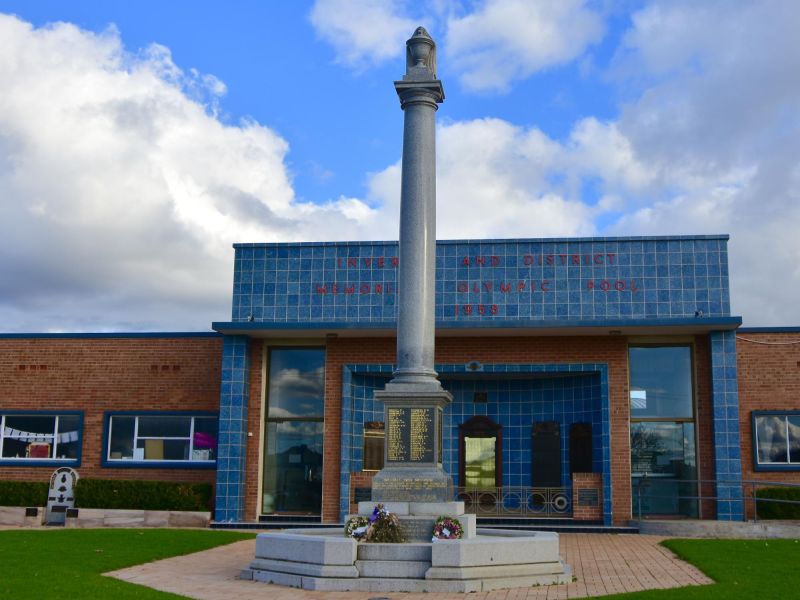Private Alfred Charles Gooda, 17th Battalion, AIF
Alfred Gooda was born in 1895 to John and Lydia Gooda of Inverell, New South Wales. He was the youngest of six children, and lost his mother when he was a young boy.
Alfred attended the local public school and went on to work as a labourer for a Mr George in Otho Street, Tingha. He later worked on Wallangra Station, and was a well-known figure in Inverell, where he had many friends. Alfred Gooda was recognised as a first rate bushman and a crack rifle shot.
Alfred Gooda enlisted in the Australian Imperial Force in April 1916. He went into camp in Armidale, and during his training was selected to serve in the trench mortars. He underwent specialist training at Menangle, and left Australia for active service overseas in October 1916.
Private Gooda first went to England, where he continued his training through the winter, and then to France in mid-March 1917. Around this time, he transferred from the trench mortars to the infantry, and served with the 17th Battalion.
Around the time Private Gooda joined the 17th Battalion, it was involved in the follow-up of the German forces after their retreat to the Hindenburg Line. Shortly afterwards the 17th Battalion helped defeat a German counter-attack at Lagnicourt.
Then, on 3 May 1917, the battalion participated in the Second Battle of Bullecourt, suffering heavy casualties.
A month later, Alfred Gooda’s sister, Mrs Griffey, received word that her brother was officially reported missing from the date of that battle. The family were left with little information for months.
The authorities conducted an investigation into the fate of Private Gooda but were not able to find details of his death. In the end, with no trace of Gooda as a prisoner of war in Germany, or in any hospital, a court of enquiry ruled that he had been killed in action on 3 May 1917 at the Second Battle of Bullecourt.
In the 1920s John Gooda chose an inscription for his youngest son’s grave. It read
In memory of his laughing eyes
And the smile upon his face
Are the constant vision memory brings
No-one can fill his place.
John Gooda’s words went unused, as Alfred’s body was never recovered. Today he is commemorated on the memorial to the missing at Villers-Bretonneux in France. He was 23 years old.
Meleah Hampton, Historian, Military History Section
- Australian War Memorial https://www.awm.gov.au/collection/C2278436

 Australian War Memorial
Australian War Memorial